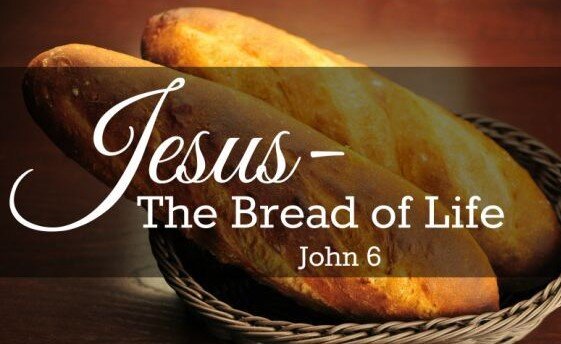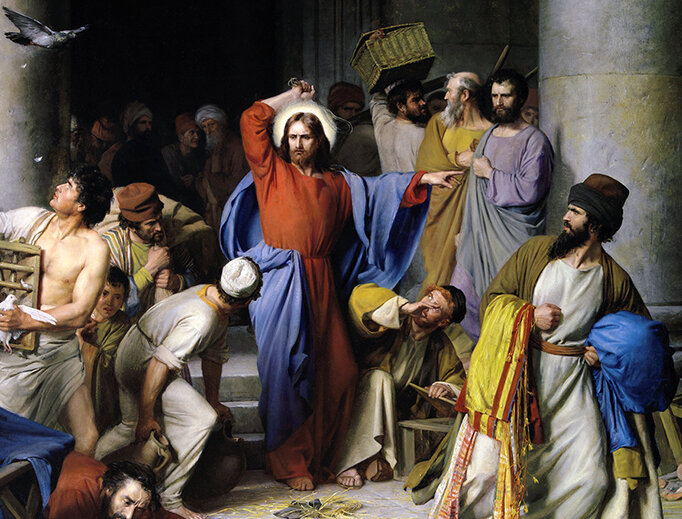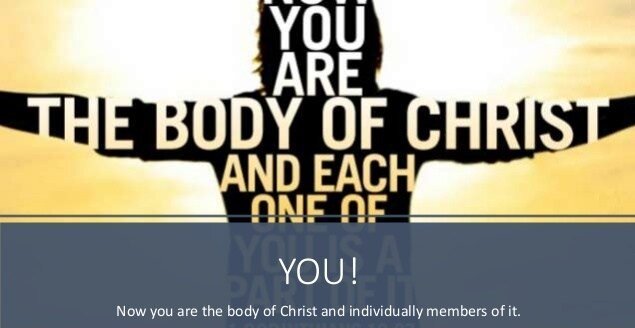There were these two guys who saw each other at a gathering. The first one said: “O Henry, you have changed! You were tall but now you seem short. You were light skinned and now you are dark. You were kind of skinny, I remember but now you have gained weight. You changed the color of your hair.” The second guy said: “I am not Henry. I am John”. The first guy said: “You even changed your name.”
- That is what we call a mind-set… prejudiced, pre-conceived idea – because no matter what the first guy saw and heard, he was still convinced of what he thinks.We are all like that at times – our minds are so set – in other words, “closed-minded” - that no matter what others tell us – no matter what we see or hear – we do not see or hear anything else except what we want to see or hear and this can lead to dangerous misperceptions of reality – therefore of others… often times resulting to conflict. We react to what we think not to what is reality.
Even in our relationship with God, this prideful attitude manifests itself in trying to force God into our own pre-conceived ideas of how God should operate and that God must adjust Himself to our way of being and acting and thinking… but the Scripture says, the truth is: God’s ways are not our ways.
Our concept or our beliefs about God, what God is, who we are before God; our concept of what life is all about - affect or influence how we see ourselves and others and therefore they affect or influence how we treat others.
Our beliefs affect how we interpret everything. Our beliefs affect our attitude which affects our behavior which develops into character and which shapes our life and therefore affects our destiny.
Accuracy of perception leads to accuracy of response.
That is why it is important for our eyes, our minds, our hearts to be open to the truth. As Jesus – who Himself is the Truth – said: “Know the truth and the truth will set you free.” …. Free from illusions… from prejudice…from blindness… from deafness…free from slavery to sin… Therefore - Free to be the person God meant us to be…. Free to live the life God intends us to live…free to enjoy God’s grace……Therefore, free to love… our true nature… according to God’s will and purpose.
Wisdom is seeing reality, our situations, as God sees them. Wisdom is seeing ourselves and others as God as sees us and as God sees others. That is why we need to pray for wisdom everyday.
The goal of our lives is conversion of our hearts and minds and to be in communion with God… to be one with God…to have the Spirit of Christ in us… to have the mind of Christ … to be in touch with reality, to be in touch with the Truth.
The apostles, even after three years of listening to Jesus’ teaching about service, humility, and true love – when they saw big crowds following Jesus and when they saw his miracles… his growing reputation, they concluded that following Jesus will ensure for them a similarly successful and mostly pleasant life. They concluded and therefore expected that Jesus would raise an army, free them from Roman rule, build a kingdom like King David… so, they started talking among themselves as to who among them is the greatest or the most important. They were already positioning themselves.
That was why when Jesus told them about his death and rising from the dead – it is beyond their concept - they could not understand it – they were so busy entertaining their own ideas…As we heard last week – Peter rebuked Jesus for talking about being killed and so Jesus, in turn, rebuked Peter saying: “Get behind me, Satan. You are thinking not as God does, but as human beings do.”
Jesus has been teaching them about the necessity of suffering and service and all they can think about is power and prestige. So, Jesus corrected them by teaching them the basic principle of discipleship. “If anyone wishes to be first, he shall be the last of all, and the servant of all” (Mk 9:35)… which blew the minds of disciples… This is in complete contradiction with the ways of the world.
Jesus wants his disciples to be great but his definition of greatness is different from worldly definition….
So, Jesus took a child and He placed the child in their midst. Jesus showed his disciples how they should see themselves. Be like a child—not seeking power nor prestige, - not lording it over anyone…
Jesus said: “I have come not to be served but to serve…. Students are not greater than their master…” - which means - His disciples, which means - US – we need to realize that we are all also called to serve… the key to true happiness and fullness of life - which is the way - we could have the best place in the kingdom of heaven.
You know what the Pope calls himself – “The servant of the servants of God.”
Life of service is not just for priests, deacons and religious – it is for all of us. That is why at the end of the Mass… we are sent …in peace … to glorify the Lord by our very lives by loving and serving the Lord in others. We are called not just to be good people – we are supposed to be good for people.
Jesus told his disciples and is telling us that greatness is found in service…especially of the poor – We are called to take care of people like a child – The child represents those who are helpless – poor, alone, neglected - young and old… those who seem insignificant to the world… those who can do little or nothing for us, those who cannot pay us back in return for our good deeds for them
So, are you ready to receive Jesus in the ones who need your help?
Greatness is in emptying ourselves – dying to our ego, our pride – and letting God work through us… being instrument of God - so others can also truly live and experience God’s love through us….We are all called to do this continually.
Every day, every moment of the day you and I are called to consider others over ourselves. Every day we have to resist the temptation to self-centeredness, self-absorption, selfishness. We are to resist the temptation to put ourselves before others.
Every day we are called to be the Presence of Jesus, to be other Christs in the world for others… to be the instruments of God’s love, grace and mercy so God can communicate His goodness… through us.;
Again – the goal of our lives is to be in union with God… beginning now – eternal life is at hand – it begins now - in this life… As we pray “Thy kingdom come, thy will be done, on earth as it is in heaven.”
(Twenty-fifth Sunday in Ordinary Time – Cycle B - September 19, 2021)


















